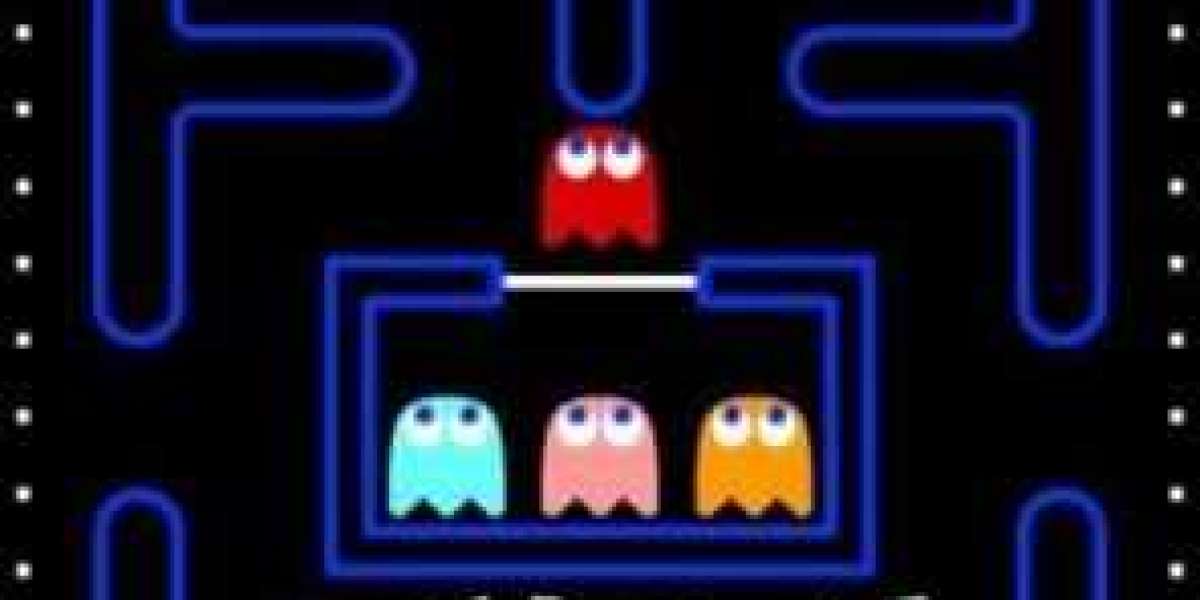This article is all about how to transform playing Pac-Man into a mental simulation of running an arcade business. We'll use the core gameplay loop, scores, and even the occasional glitches to create a dynamic and surprisingly engaging experience.
Introduction: Welcome to Pac-Arcade!
Our goal isn't just to play Pac-Man; it's to run "Pac-Arcade," a hypothetical arcade dedicated to the yellow chomper. We'll be tracking our "profits" (our Pac-Man scores), managing our "customers" (successfully navigating each level), and dealing with "unexpected events" (every time Inky decides to be particularly annoying!). This isn't about perfect optimization or hardcore strategy; it's about having fun, letting our imaginations run wild, and experiencing Pac-Man in a whole new way.
So, how do we turn a classic arcade game into a management sim? Let's dive into the gameplay.
Gameplay: The Art of Pixelated Management
Here's how we'll track our "arcade's" performance, using Pacman 30th Anniversary:
The Daily Grind (Each Game): Every game you play represents a "day" in the life of Pac-Arcade. The score you achieve in that game is your "daily revenue." We'll be keeping track of this over several "days" (games) to see how our arcade is performing.
Customer Satisfaction (Level Progression): Each level you complete represents happy customers who keep coming back. Higher levels mean more revenue and a more successful arcade! So, aim for high levels, not just high scores.
Operating Costs (Power-Ups): Power pellets are your "marketing budget" and "customer retention strategies." They cost you points, but they help you keep the "customers" (ghosts) happy (or rather, scared and edible!). Strategically using power pellets affects your profitability.
Unexpected Events (Ghost Behavior): The unpredictable nature of the ghosts represents the unexpected challenges of running a business. Maybe Blinky is unusually aggressive today (lower score), or Pinky is surprisingly predictable (higher score). These are "market fluctuations" or "unexpected expenses" that affect your bottom line.
Maintenance Costs (Game Over): Game over! This represents a significant loss. Perhaps a machine broke down, or a bad review tanked your business for the day. You start the "day" (game) over, mindful of what went wrong.
Expansion (High Scores): Reaching a new personal best represents expanding your arcade with new machines and attracting a bigger crowd. These scores show your arcade is growing and improving.
Tracking Your "Business":
To make this work, you'll need a notepad (or a digital document) to track your "arcade's" progress. Here's a simple template:
- Day (Game) #:
- Daily Revenue (Score):
- Levels Completed:
- Notes (Unexpected Events/Strategies): Did you use power pellets differently? Did the ghosts act strangely?
- Cumulative Revenue (Total Score):
After playing several "days" (games), you can analyze your "arcade's" performance. Are you consistently improving? Are certain strategies more effective? Are the ghosts just out to get you (representing a particularly tough business environment)?
Tips and Tricks for Pac-Arcade Success:
Here are a few tips to maximize your fun and engagement with this imaginary simulation:
- Embrace the Narrative: Don't just play; imagine the scenario. Are you trying to attract a younger crowd by focusing on aggressive power-up usage? Or are you aiming for a more mature audience with a classic, score-focused approach?
- Experiment with "Marketing": Try different strategies with power pellets. Are you using them defensively (for survival) or offensively (for maximizing score)? Each approach represents a different "marketing" strategy.
- Analyze Your "Failures": When you get a game over, don't just shrug it off. Think about what went wrong. Did you misjudge the ghosts' behavior? Did you waste power pellets? This is a learning opportunity!
- Adjust Your "Business Plan": Based on your performance, adjust your "strategy." If you're losing money consistently, maybe you need to be more aggressive with power pellets. If you're doing well, maybe you can focus on conserving power-ups and maximizing score.
- Have Fun!: This is all about enjoying Pac-Man in a new way. Don't get too bogged down in the details. Let your imagination guide you.
Conclusion: Level Up Your Gaming Experience
While Pacman 30th Anniversary isn’t a dedicated store management game, using it as a framework for one provides a fun and engaging way to experience a classic game in a new light. By tracking your scores, analyzing your strategies, and embracing the narrative, you can transform a simple arcade game into a surprisingly complex and rewarding business simulation.
So, boot up Pac-Man, grab your notepad, and get ready to run Pac-Arcade! Who knows, you might just discover a hidden talent for pixelated entrepreneurship. Happy chomping!


